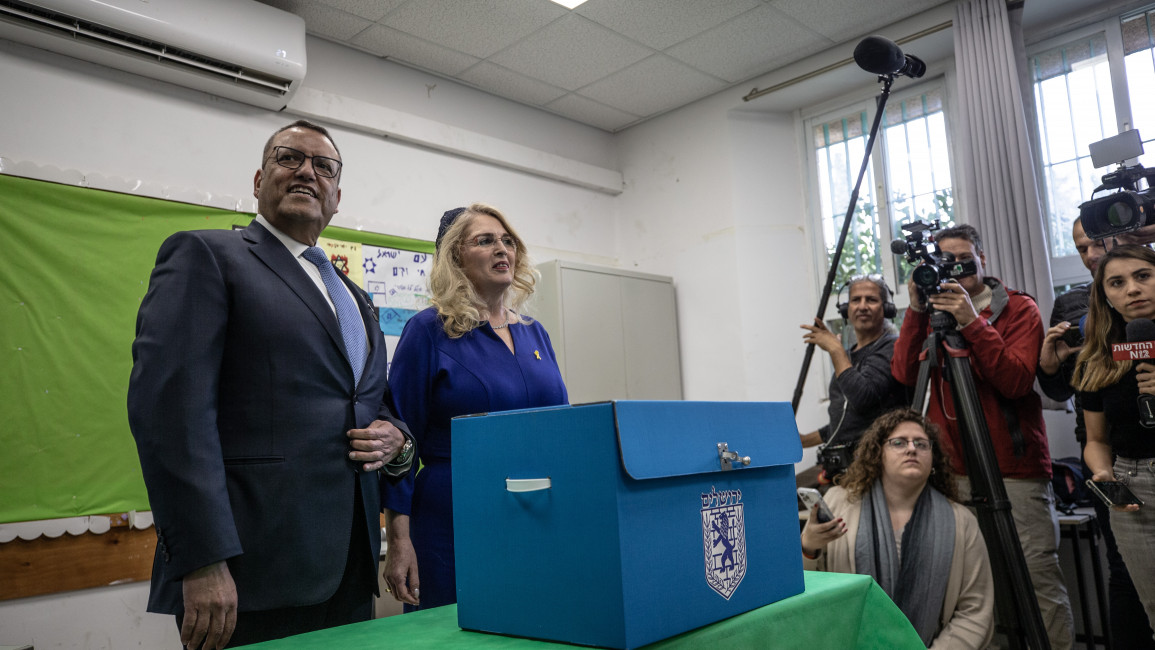Israel voters give Tel Aviv, Jerusalem mayors new terms
The mayors of Tel Aviv and occupied Jerusalem were set to win new terms as preliminary results from Israel's delayed municipal elections trickled in on Wednesday.
The early results also showed that ultra-Orthodox parties won nearly half the vote in Jerusalem city council contests, primarily due to low turnout among other blocs.
Israel was originally scheduled to hold mayoral and municipal council elections on October 31, but postponed them after the war in Gaza erupted earlier that month.
Elections were finally held on Tuesday, except in areas that have seen large-scale evacuations during the war.
Nearly 150,000 residents have been evacuated from border areas, both in the south near the Gaza border and in the north near the Lebanese border, which has seen near-daily exchanges of fire between the Israeli army and Hamas ally Hezbollah.
Turnout on Tuesday was down from the last municipal elections in 2018, with only 49 percent of eligible voters casting ballots.
Israel's municipal elections were held on Tuesday presenting a rare chance of representation for Palestinian citizens of Israel. However, turnout was expected to be low due to the war on Gaza
— The New Arab (@The_NewArab) February 28, 2024
↓https://t.co/VcCedEIpUa
In Tel Aviv, former economy minister Orna Barbivai conceded defeat to longtime incumbent Ron Huldai, who has been mayor for the past quarter of a century.
Jerusalem Mayor Moshe Lion also appeared to have won a landslide re-election victory, according to preliminary results published by the interior ministry.
The ultra-Orthodox community turned out in large numbers in Tuesday's vote, according to Israeli media reports.
The ultra-Orthdox make up around a third of Jerusalem's one million population, and they traditionally vote for political parties that advance their tight-knit community's interests.
Palestinian residents, who have the right to vote in municipal elections but not for Israel's parliament, make up around 40 percent of Jerusalem's population.
However, most of them have boycotted municipal elections since Israel captured east Jerusalem in 1967 and later annexed it in a move never recognised by the international community.


![Minnesota Tim Walz is working to court Muslim voters. [Getty]](/sites/default/files/styles/image_684x385/public/2169747529.jpeg?h=a5f2f23a&itok=b63Wif2V)




![Debris near Rafic Hariri International Airport [Getty]](/sites/default/files/styles/image_330x185/public/2176162423.jpeg?h=a5f2f23a&itok=MCSK9mkM)
![An Israeli air strike on Jabalia killed teenage journalist Hassan Hamad [Screengrab/X]](/sites/default/files/styles/image_212x120/public/2024-10/hassan%20hamad1.jpg?h=c12e0b96&itok=KstD_5xk)
